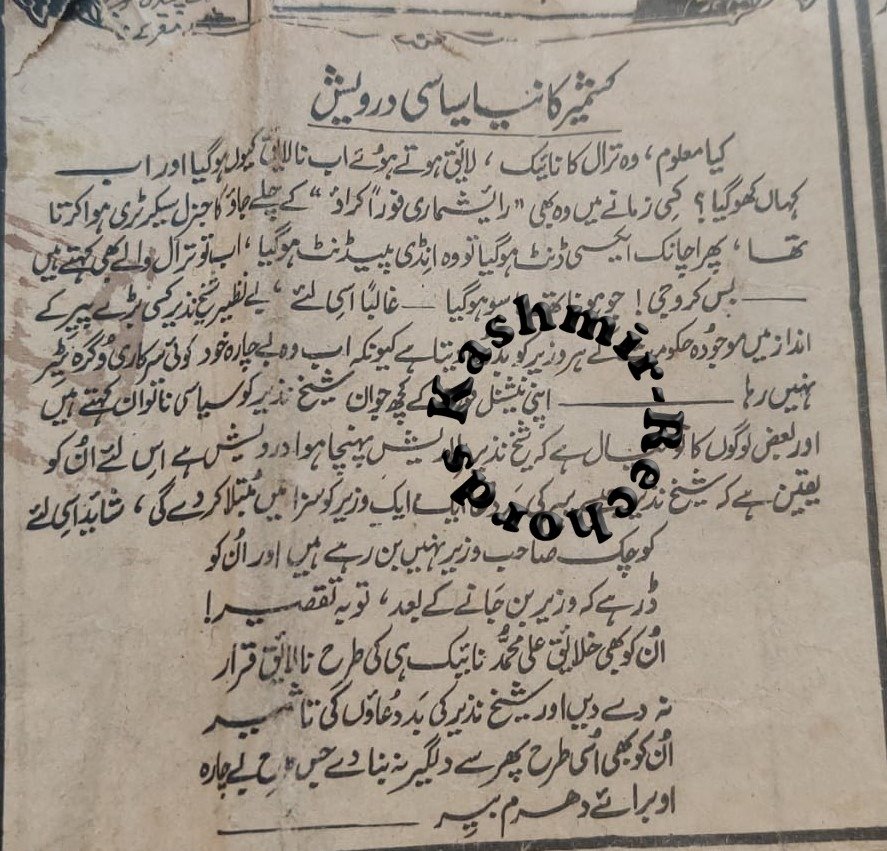(By: Kanwal krishan Lidhoo)*
Kashmir’s rich tradition of humor is a notable aspect of its socio-cultural history. This tradition is evident in the works of literary giants like Kshemendra, who used satire as his primary form of expression. Kshemendra’s writings often addressed topics of interest through satirical narratives rather than the pure humor classified by language experts. His approach involved exploring socio-economic and political issues, presenting them in a light that highlighted their absurdities and contradictions.
The tradition of satire in Kashmiri literature has persisted through the ages and remains a prominent mode of expression today. Kashmiri humor often serves as a means of critiquing society and the powers that be, using wit and irony to expose flaws and injustices. This satirical tradition enriches the cultural landscape and continues to shape how issues are understood and discussed within the community.


Known for his satirical Newspaper Column “Khazar Sochta Hai Wular ke Kinare,” , the owner cum Editor of Roznama Aftab, Khawaja Sanaullah Bhat created memorable and humorous adages that resonated with the people of Kashmir. Bhat’s columns were known for their wit and incisive observations, exposing the hypocrisy of the political class and resonating with the masses. His humorous yet critical approach made him a hero among Kashmiris, and he played a significant role in shaping the region’s tradition of literary and satirical humor, particularly through his daily writings in his “Roznama Aftab” Urdu newspaper.
Kashmir’s renowned journalist, Yousuf Jameel who had worked with Aftab for over four years, recalls that the column was dictated to him by Khawaja Sahab umpteen times.

Loved and Hated Figure
Bhat’s work showcased his talent for satire and his ability to critique the establishment through his anti-establishment writings. One such adage, which gained cult status in Kashmir, depicts brutal humor related to former Prime Minister Indira Gandhi’s famed twenty-point programme. The adage goes as follows: “I agar love you, Magar you don’t me.”
This phrase is so playful and a witty take on the empty political programme through a blend of English and Kashmiri language reflecting Editor’s talent for mixing humor and social commentary also. His ability to creatively criticize political programmes and leaders through his writings made him both a loved and hated figure in Kashmir. Ordinary Kashmiris loved him while the politicians hated this literary giant.
Kashmir Rechords is presenting one such column published in Aftab newspaper in 1983, under the heading “Kashmir Ka Naya Siyasi Darvesh’’. In this column, the columnist targets “Tral Ka Nayak’’ and it makes a wonderful reading!
